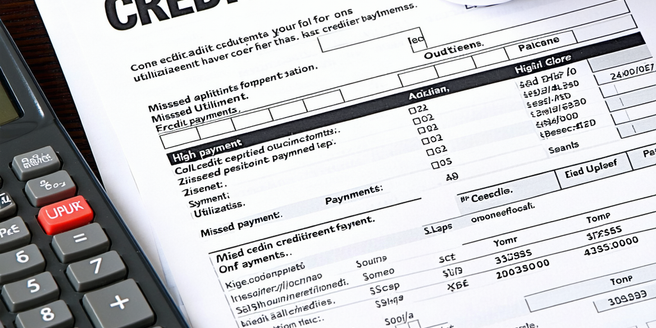
Understanding Poor Credit Scores and Their Impact on Loans
Poor credit scores often arise from factors such as missed payments, high credit utilization, or bankruptcy. Understanding how these elements interact is crucial for borrowers. A low credit score signals lenders of potential risks, leading to higher interest rates on loans. This increased cost is a protective measure for lenders to balance the risk of lending to individuals with shaky credit histories. Borrowers with poor credit face challenges in securing loans and often have limited choices. Their options may include high-interest loans or subprime lenders. Evaluating one’s credit report, identifying inaccuracies, and understanding credit score calculations can empower borrowers to make informed financial decisions. Over time, improving one’s credit health by paying bills on time and reducing debt can help secure better loan terms.
Factors Influencing Interest Rates for Poor Credit Loans
Interest rates for poor credit loans are influenced by various factors, including the borrower’s credit score, the loan amount, and the loan type. Lenders assess a borrower’s ability to repay by examining credit scores; lower scores generally lead to higher interest rates. Additionally, the loan amount can affect rates; larger loans may come with more scrutiny and risk, potentially increasing rates. The type of loan also matters; unsecured loans typically carry higher rates compared to secured loans where collateral is offered. Economic conditions, lender policies, and the individual’s overall financial health play significant roles in determining specific rates. Borrowers with poor credit scores should compare different lenders and loan products to find favorable rates and terms that suit their financial situation without undue burden.
How Lenders Determine Interest Rates for Poor Credit Borrowers
Lenders use a variety of methods to determine interest rates for borrowers with poor credit. Primarily, they start by evaluating the borrower’s credit score, which gives an indication of past financial behavior. A lower score usually translates into higher interest charges. Lenders may also assess income levels, debt-to-income ratio, and employment history to estimate the borrower’s ability to repay the loan. Some lenders might delve into specific reasons for the poor credit score, such as medical debts or unemployment, which can influence their decision on setting interest rates. Additionally, market conditions and lender policies at the time of the loan application play significant roles. Understanding these factors, borrowers can better navigate the loan process, negotiate terms, and potentially receive favorable interest rates.
Comparing Poor Credit Loan Options
When comparing poor credit loan options, borrowers must consider several key aspects to make the best financial decision. Interest rates, loan terms, and repayment options are critical factors that vary widely among lenders. Secured loans might offer lower interest rates than unsecured loans, but they require collateral, posing a risk to the borrower. Borrowers should also assess fees, including origination fees and penalties for late payments or early repayment. Customer service and lender reputations are important, as some lenders might have predatory practices. Tools like loan comparison websites can assist in evaluating potential loans, helping borrowers to identify the most manageable and affordable options. Sound comparisons enable borrowers to navigate their poor credit situations effectively, ensuring that they secure necessary funds without exacerbating financial difficulties.
Tips to Improve Your Credit Score and Lower Interest Rates
Improving your credit score is a vital step towards securing lower interest rates on loans. Begin by reviewing your credit report for inaccuracies, and dispute any errors promptly. Consistent, on-time bill payments boost your score over time, while reducing high credit card balances can lower your credit utilization ratio—a significant credit score factor. Diversifying your credit mix and maintaining longstanding credit accounts positively affect your score. Avoid opening several new accounts simultaneously, as this can lower your age of credit history. Utilizing budgeting tools and financial advisories can provide guidance and prevent overspending. Demonstrating responsible credit behavior not only enhances your score but also establishes leverage to negotiate better loan rates. Taking these steps gradually improves credit health, making favorable loan terms achievable.
